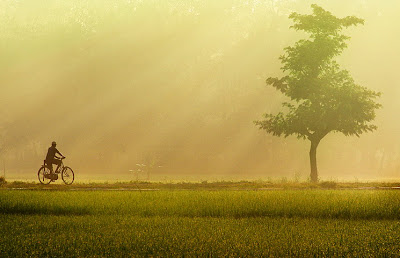As a landscape photographer, you're always looking for new places to shoot. With each new location comes a new set of challenges to overcome. How am I going to make this picture? Where can I shoot? One thing is knowing the basics of taking great photos of the landscape, and another to execute them to perfection. The more you know, the better your chances to grab some jewelry that you can use in your portfolio.
These quick tips are not essential to every landscape picture you take, but bearing them in mind and applying them judiciously will improve your picture-taking.
* A foreground object will help to frame the scene and add a look of three-dimensionality.
* Frame the scene so that it contains a center of interest - an object that draws the viewer's eye into the picture.
* Placing the center of interest off-center, in accordance with the Rule of Thirds, will create a harmonious composition.
* Placing the horizon a third of the way down from the top or bottom of the frame is usually much better than having it in the middle of the scene.
* Scale can often be important to the understanding of a landscape, and can be achieved by including an object of a known size in the scene. People, animals or other recognizable objects that would naturally belong in the scene are suitable for showing scale.
* The quality of lighting is perhaps the most influential attribute of a successful landscape. Waiting for interesting lighting that is moody, dramatic or diffused usually pays off in a memorable photograph.
* Ensure that your camera's flash is turned off when shooting landscapes, unless you require it to brighten a foreground object. Flash in a dusty, misty or foggy scene may cause flare by reflecting off the droplets of moisture or dust particles.
* Use a tripod to ensure sharpness, especially in low-light conditions.
* In very low light, be sure to select a fast film speed or a high ISO sensitivity setting in your digital camera that will permit proper exposure and good depth of field.
* Watch for unsightly or unnatural elements such as overhead wires, hydrants, poles and garbage cans, especially in the foreground. If you cannot easily move them, reposition yourself to a camera angle that eliminates them from the frame.






No comments:
Post a Comment